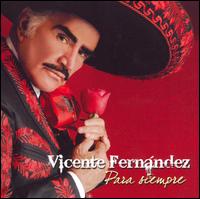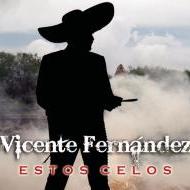
David Bisbal Ferre is a Spanish singer, songwriter, and actor. He gained his initial fame as a runner-up on the interactive reality television show Operación Triunfo.

Luis Miguel Gallego Basteri is a Puerto Rican–born Mexican singer and record producer. Born to parents of Spanish and Italian descent, he is often referred to as El Sol de Mexico, derived from the nickname his mother gave him as a child: "Mi sol". Luis Miguel has sung in multiple genres and styles, including pop songs, ballads, boleros, tangos, jazz, big band, and mariachi. Luis Miguel is also recognized as the only Latin singer of his generation to not cross over to the Anglo market during the "Latin Explosion" in the 1990s.

Edgar Ricardo Arjona Morales, known as Ricardo Arjona, is a Guatemalan singer and songwriter. He is one of the most successful and best-selling Latin American artists of all time, with more than 20 million records sold. He is often called El Animal Nocturno, thanks to his breakthrough success with his fourth studio album, which bears the same name. His music ranges from ballads to Latin pop, rock, pop rock, Cuban music, and more recently a cappella performances and a mixture of Tejano music and Norteño music, and Latin sounds. Arjona is noted for his lyrical style, and often addresses topics such as love, sexuality, violence, racism and immigration.

Reik is a Mexican pop rock band from Mexicali, Baja California, formed in 2003 by Jesús Alberto Navarro Rosas, Julio Ramírez Eguía, and Gilberto Marín Espinoza (guitar). The group's first five albums have been classified as Latin pop, but the group has since transitioned to a more urban-influenced sound since 2015. Reik has won a Latin Billboard Music Award, four Los Premios MTV Latinoamérica awards, and a Latin Grammy.

Para Siempre is the 79th studio album released by Mexican singer Vicente Fernández on September 18, 2007 by Sony BMG Norte. Written and produced by Joan Sebastian, and co-produced by Jesús Rincón, the album is a successful mariachi record. It has sold two million copies worldwide, and is one of the biggest-selling albums by Fernández. It spawned five singles: "Estos Celos", "La Derrota", "Un Millón de Primaveras", and the title track, the latter of which was used as the main theme to the Mexican telenovela Fuego En La Sangre, which brought the album wider exposure and helped it to stay in the charts for over two years. It was named the best-selling Regional Mexican Album of the decade by Billboard magazine.

"Estos Celos" is a song written and produced by Mexican singer-songwriter Joan Sebastian and performed by Mexican recording artist Vicente Fernández. It was released as the lead single from Fernández's 79th studio album Para Siempre (2007).

"Tal Vez" (transl. "Perhaps") is a song recorded by Puerto Rican singer Ricky Martin for his seventh studio album, Almas del Silencio (2003). The song was written by Venezuelan singer-songwriter Franco De Vita, while the production was handled by Tommy Torres. It was released to radio stations by Sony Discos as the lead single from the album on March 25, 2003. A Spanish language rock ballad, it is a romantic song about regret, lost opportunities, and last chances. The song received widely positive reviews from music critics, who complimented its melody, lyrics, and Martin's vocals. It was ranked as one of the Top Latin Songs of the Century by Latin Times.

Isidro Chávez Espinoza, better known as Espinoza Paz, is a Latin Grammy nominated Mexican musician and composer of regional Mexican music, specializing in the styles of banda, norteño and mariachi.

El Canta Autor del Pueblo is the first studio album by regional Mexican artist Espinoza Paz. It was released on 18 March 2008, by American Show Latin / Machete Regio.

Yo No Canto, Pero lo Intentamos is the second studio album by regional Mexican recording artist Espinoza Paz. It was released on January 26, 2009, by Disa Records.
"Hasta Que Te Conocí" is a song by Mexican singer-songwriter Juan Gabriel. It was released in 1986 as the third single from his studio album Pensamientos. Written and produced by Gabriel, the song's lyrics focus on a protagonist learning the meaning of suffering after meeting a lover who mistreats him. It peaked at number two on the Billboard Hot Latin Song chart. A live version of the song was included on his album En el Palacio de Bellas Artes (1990) which peaked at number ten on the Hot Latin Songs chart.

Puros Trankazos is a compilation album released by Fonovisa Records on July 16, 2011. The album includes tracks recorded by several artist from the regional Mexican genre, such as Julión Álvarez y su Norteño Banda, Voz de Mando, Vagón Chicano, Enigma Norteño, Larry Hernández, Los Horóscopos de Durango, Chuy Lizárraga y su Banda Tierra Sinaloense, Grupo Violento, Banda Sinaloense MS de Sergio Lizárraga, El Chapo de Sinaloa, Fidel Rueda and Alfredo Olivas.

Brava! (Brave!) is the tenth studio album and second bilingual album by Mexican recording artist Paulina Rubio, released on November 15, 2011 by Universal Music Latino. Two of its three singles "Me Gustas Tanto" and "Boys Will Be Boys" became hits for Rubio.

Del Rancho Para el Mundo is the Latin Grammy Award nominated third studio album by regional Mexican recording artist Espinoza Paz. It was released on 10 August 2010 by Disa Records.

Canciones de Amor is a compilation album released by Guatemalan singer-songwriter Ricardo Arjona on through Sony Music on January 23, 2012. It contains ballads from previous studio albums released by Arjona from 1993 to 2001. The album charted at number 16 on the US Billboard Top Latin Albums chart and at number five on the Billboard Latin Pop Albums component chart.
"Un Hombre Normal" is a song recorded by Mexican singer Espinoza Paz, released as a single from his album of the same title. The song became his fourth top 5 hit on the Billboard Latin Songs chart, and the third to peak at No.4, after "Al Diablo Lo Nuestro" (2010) and "El Culpable" (2011). "Un Hombre Normal" was nominated for a Pop Song of the Year at the Premio Lo Nuestro 2013.
"El Próximo Viernes" is a song by Regional Mexican singer-songwriter Espinoza Paz from his 2008 debut album El Canta Autor Del Pueblo.

"Hasta Que Me Olvides" is a song by Mexican singer Luis Miguel from his ninth studio album, Aries (1993). The song was composed by Dominican Republic singer-songwriter Juan Luis Guerra with Miguel and Kiko Cibrian handling the production. It was released as the album's second single in August 1993 by WEA Latina. A sentimental ballad, the song narrates the protagonist who insists on loving his partner until he is forgotten.

Piso 21 is a Colombian Latin pop group. Their singles "Me Llamas", "Besándote" and "Déjala Que Vuelva" were hits in their home country, Latin America and Spain.

"Si Tú Supieras" is a song written by Kike Santander and performed by Mexican recording artist Alejandro Fernández. It was co-produced by Santander and Emilio Estefan and was released as the first single from Me Estoy Enamorando by Sony Music Mexico on 18 August 1997. The song is a bolero-pop ballad with ranchera influences and portrays the singer yearning for his lover to know how much she means to him. A music video was made for the track and was used as the main theme for the Mexican telenovela María Isabel.

















